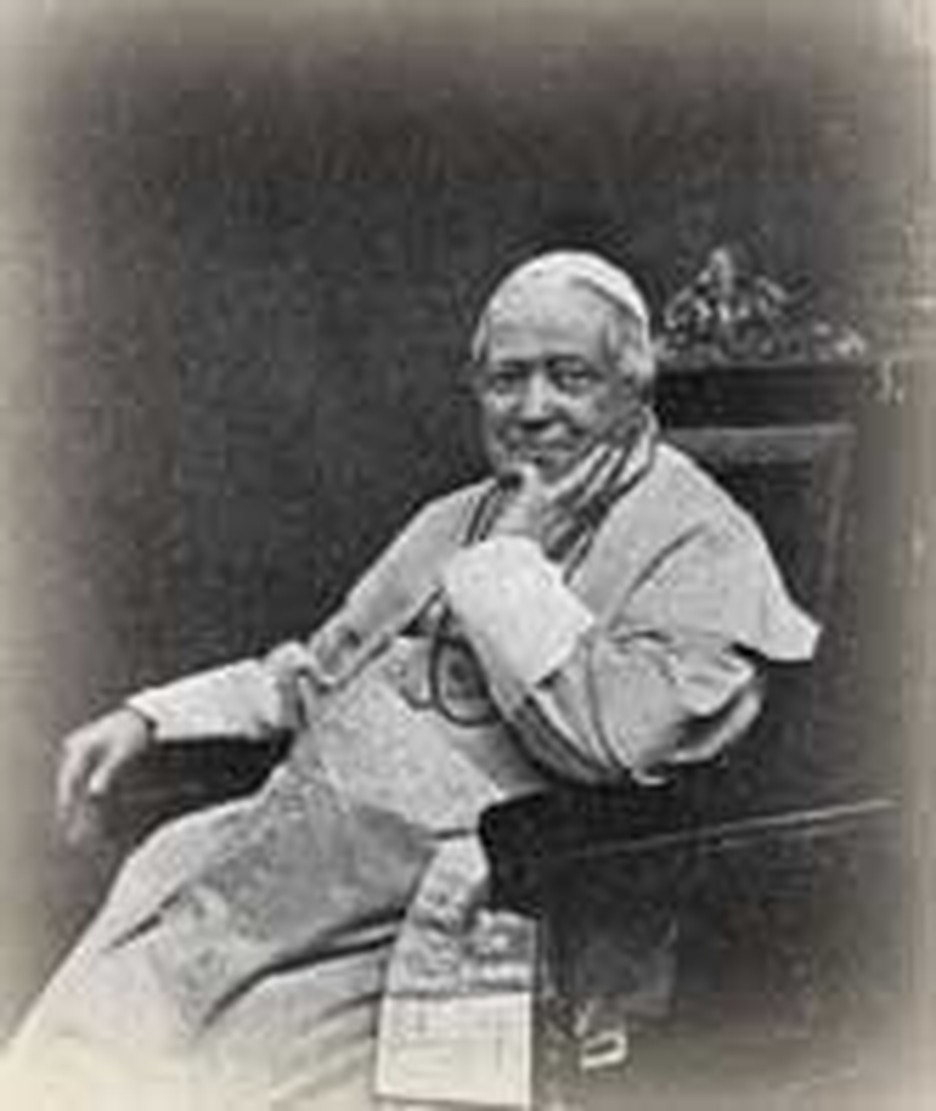
The longest papacy in history began on this day June 16, 1846 when Giovanni Maria Mastai Ferretti became Pope Pius IX. Well might he ponder Christ's words, "In this world you will have many troubles, but be of good cheer, for I have overcome the world." His thirty-two years as pontiff were troubled indeed.
Pius IX's predecessor, Gregory XVI had estranged Italians through oppressive measures. The popes were still sovereign over large sections of Italy and were harsh landlords. Pius was elected because of his reputation as one who favored granting liberties to people. He won an immediate enthusiastic response by releasing thousands of political prisoners and drawing up a constitution that would grant representative government to Italians. But all of this quickly soured. Long before his death he was considered a reactionary and once uttered the memorable words: "Tradition--I am tradition!"
When he took office, the Popes ruled vast lands. The papacy was strong and the people called for him to head a coalition to rule Italy. Yet when he refused to condone the revolution that aimed to drive the Austrians out of Italy, the people turned on him. He had to flee for his life. Although the French restored him to Rome in 1849, he became virtually a "prisoner of the Vatican." One by one, the papal lands were stripped away.
After his humiliating flight and restoration, Pius achieved a number of notable successes. He restored papal hierarchies in the Protestant nations of England and the Netherlands and negotiated concordats with Spain, Russia and Austria. Pius also created many sees in the United States. Some years after he returned to Rome, he called the First Vatican Council. The council was harshly criticized because there were more Italian bishops than bishops from all other European nations combined.
Nonetheless, Vatican I made important decisions. The tumultuous events of Pius IX's reign seemed to call for a dramatic response by the beleaguered church. Perhaps that explains why this time was chosen to declare the doctrine of papal infallibility, which says that the pope cannot err when speaking ex cathedra on matters of faith and morals. By ex cathedra is meant speaking in his authority as head of the church to interpret such matters. A pope's ordinary comments and remarks are fallible, of course. This teaching is rejected by Protestants, Orthodox and even some Catholics, who find plenty of historic examples when the pope was not infallible in his religious pronouncements.
Vatican I also denounced false beliefs known as Modernism. Pius issued a Syllabus of Errors against such developments as Rationalism, Communism, Naturalism, interfaith marriages and latitudinarianism (a too wide and easy belief system)--but also against Bible societies. He also announced the dogma of the Immaculate Conception, which teaches that Mary was excluded from original sin from the moment of her conception, entirely through the merits of Jesus Christ. Various theologians (such as St. Ephrem) had held this view through the centuries. Among the notables who did not were St. Bernard of Clairvaux, a devotee of Mary, and St. Thomas Aquinas. Protestants and Orthodox reject the idea, pointing out that it is not even hinted at in scripture, which they hold to be the final authority in such matters.
Whispering, "Guard the church I love so well," Pius IX died in 1878. His long papacy had finally ended when he succumbed to a form of dropsy.
Bibliography:
- Barry, William. Story of the Nations: Papal Monarchy. Putnam, 1902.
- Brusher, J. Popes Through the Ages. Princeton, New Jersey: Van Nostrand, 1964.
- Montor, Chevalier Artaud de. Lives and Times of the Popes. New York: Catholic Publication Society of America, 1909.
- "Pius IX." The Catholic Encyclopedia. New York: Robert Appleton, 1914.
- Sugrue, Francis. Popes in the Modern World. New York: Thomas Y. Crowell, 1961.
Last updated April, 2007.








